"It certainly wasn't an easy shoot": The story of Alien 3's tortured gestation, as told by its cast and creators
One version of the script focused on space marine Hicks, another aliens-on-earth, but what led the most-polarising Alien sequel to be disowned by its creator?

By all accounts, Alien 3 should have been one of the most successful sequels of all time. At the close of 1986’s rip-roaring Aliens, Sigourney Weaver’s Ripley, having defeated her interplanetary acid-blooded adversaries, retreated into a space pod bound for Earth accompanied by her compatriots Bishop, Hicks and Newt. All four characters were (seemingly) put into a very safe cyber-sleep. The next instalment, one assumed, would pick up shortly thereafter – with the fabulous foursome awake, and in fresh surroundings, pitted against a new horde of hot-tempered Xenomorph menace.
Unfortunately, it was not to be. With ex-music video helmer David Fincher opting to take the franchise in an unexpectedly dark and dingy direction – with a plot detailing Ripley’s struggle for survival on an inauspicious all-male prison-world – 1992’s would-be summer blockbuster, Alien 3, was not what anyone expected. Highlighting just one solitary space-beast, and a group of gun-less victims, the often-meandering movie could not be further removed from the “gung-ho”, blood-pumping bullet ballet that propelled its immediate predecessor into a pop culture phenomenon.
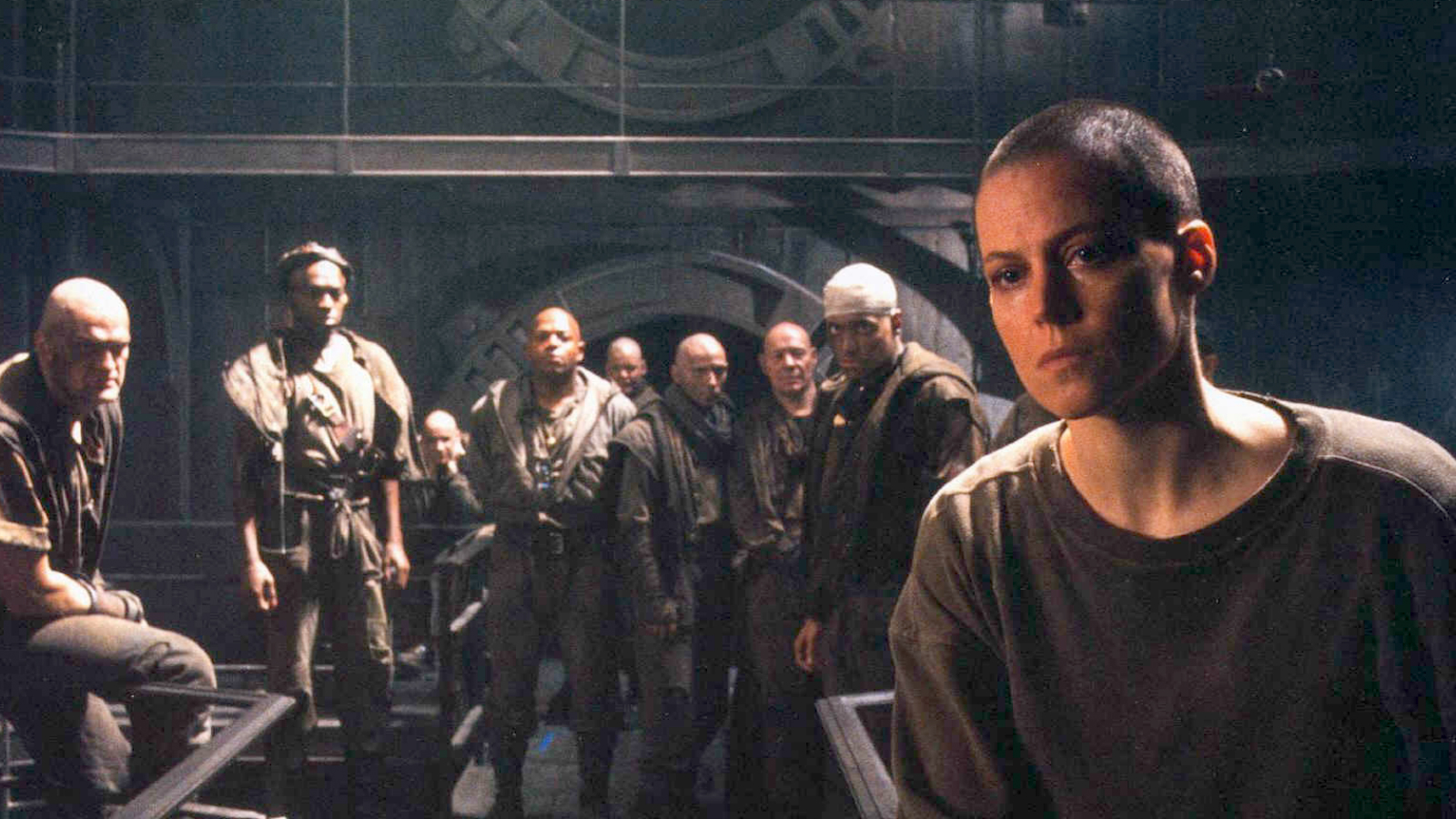
Moreover, with Ripley’s group massacred during a crash-landing, Alien 3 tied itself into a “one-woman” show – although even sci-fi’s most formidable female, who finds herself impregnated with a stomach-burster of her own, would fail to make it to the end of the claustrophobic epic. Talk about conclusive. And depressing.
In the scripting process, no one can hear you scream
Of course, Alien 3 is also well known for its behind-the-scenes battles and its rushed production schedule. Fincher himself was not even the studio’s first choice as director – Renny Harlin was originally attached (he quit to make Die Hard 2 instead) and Ridley Scott was offered the opportunity to make a return (in retrospect, it probably would have been a better option than Prometheus). Numerous script rewrites later and Fincher was finally brought onboard with, reportedly, only five weeks of prep time.
Initially, the plan was to concentrate on Michael Biehn’s Hicks character – with Weaver taking a back seat to the action. When this idea was scrapped, later screenplays were commissioned – including an aliens-on-Earth option courtesy of Eric Red (who had penned the popular vampire potboiler Near Dark) to the now-legendary wooden-monastery planet take instigated by Vincent Ward (who obtained a credit for “story” on the final flick). Finally, though, original Alien creators Walter Hill and David Giler were brought in, alongside Highlander scripter Larry Ferguson, to form the film that became Alien 3 – although Fincher and his own pen-man, Rex Pickett, would do a further rejig as shooting was about to commence.
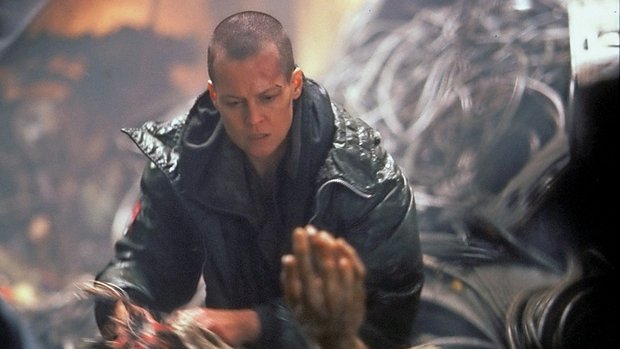
“My friend and partner, David Giler, and I worked on the story for Alien 3,” states Hill when SFX catches up with him. “But let’s just say that we had some ‘philosophical differences’ in regards to how the series was being developed. Since Alien 3 we have had no connection to the franchise outwith being credited as creating the characters.”
"What was on the screen was quite removed from what was in the script"
Charles Dance, Actor
At least one thing Alien 3 does have in its favour is a strong cast of reliable British thespians – including Brian Glover, future Doctor Who Paul McGann and Charles Dance, who is quick to admit that the making of the movie was a less-than-pleasurable experience... “Well, look, it wasn’t a nightmare, despite what you may have read or heard elsewhere,” begins Dance when SFX sits down with him. “But it certainly wasn’t an easy shoot. What was on the screen was quite removed from what was in the script. But, with that said, I don’t regret that I was a part of it. I mean, I knew going into Alien 3 that this was a big franchise picture – and there are a lot of cooks in the kitchen on these things.”
Sign up to the SFX Newsletter
Get sneak previews, exclusive competitions and details of special events each month!
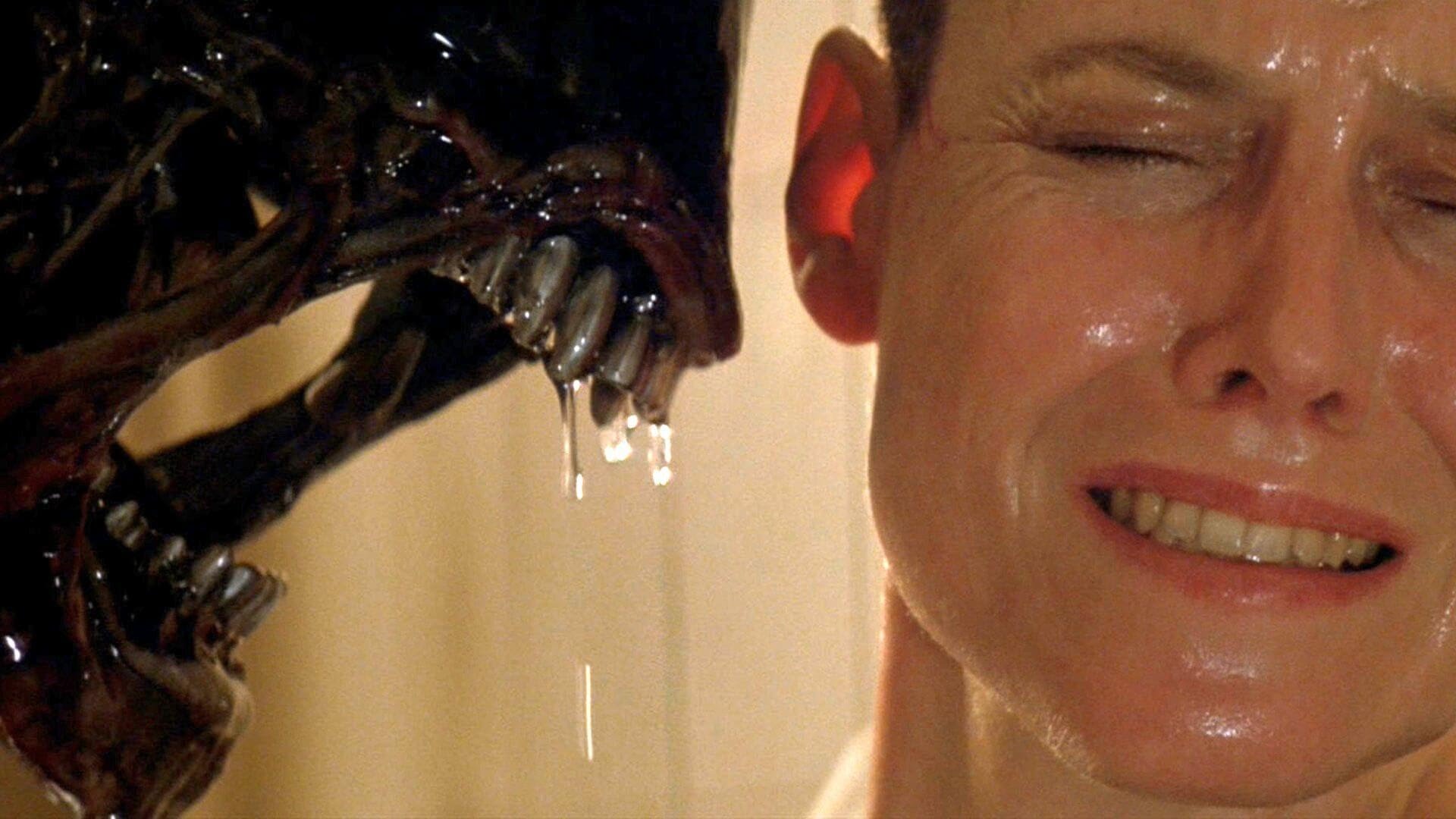
As well as the lack of firepower, and the minimalist approach to both story and surroundings, another unique element of Alien 3 comes from the fact that Ripley is offered a love interest – in the form of Dance’s attractively accented medical doctor Clemens. Frequently forgotten about in various retrospectives on Alien 3 is the fact that this is the sole entry in the series in which Weaver actually gets to become carnally involved with a member of the opposite sex. Alas, effectively adding to the feature’s downbeat dystopia, even Dance is destroyed midway into the movie – falling prey, post-coitus no less, to the toothy title terror.
“I did think it was a pity that the only character Ripley ever had any kind of relationship with was killed off a little bit early,” reflects the actor. “It was not very fair. I would have liked to have stayed alive for a bit longer. However, film is a director’s medium, not an actor’s medium. It’s up to me to make the movie that the director wants. Now, and I need to stress this, any problems I had with the making of Alien 3 had nothing to do with David Fincher. In fact, the minute David Fincher first walked onto the set I thought, ‘My god, this guy is going to go far.’ He was fantastic – and I hope that I get to work with David again at some point. He was dealing with a lot of outside interference on that movie.”
Nevertheless, at least one thing was evident as shooting on Alien 3 got underway – this was not going to be the sort of special effects laden supernova that Aliens had been. “I was pleased with that actually,” admits Dance. “I didn’t go back and watch the other two films before Alien 3 – however, I did see Alien when it first came out and I remembered it fondly. On the other hand, I didn’t think Aliens was very good. To me, it was not a very good story – it was just a lot of people firing guns all over the place. What got me excited about the third film was that they toned that down. But what ended up on the screen was a different animal than what was on the page.”
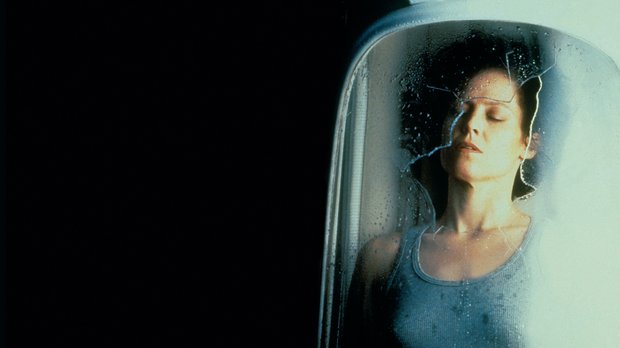
For some, part of the interest of the Alien franchise comes from the underlying elements of maternal malevolence and gender-subversion, from a male giving birth to the penetrative-parent alien. You can see Alien 3 as extending these intriguing elements, with Ripley forced to dominate a group of males, and in the process masculinising herself (witness that shaved head), before dying in the midst of giving birth to a beast that she, understandably, does not want to introduce to the world.
According to Hill, though, giving too much Freudian thought to this tale of torrid parentage is best approached with caution. “You would really need to explain some of that stuff to me,” he chuckles. “Listen, I once made a wise ass remark. It was about 25 years ago and I have never had so many letters in my life. I said something about psychoanalysis – basically that it is astrology for intellectuals, and I got about 200 letters scolding me. Everybody has to make a living, though, and some people have obviously decided they can make living out of writing that stuff on the Alien films. But that is not the business I am in. All I know is that we just wanted to make good scary movies. Maybe some stuff got snuck in there without me realising – who knows?”
Regardless of one’s take on Alien 3, when the troubled extraterrestrial opus wrapped (with Fincher disassociating himself from the final product and choosing not to involve himself in the post-production) it had to be obvious to the series’ studio, Fox, that this eagerly anticipated third offering was not going to be an audience pleaser. “I didn’t honestly think about that,” shrugs Dance. “That is up to other people to consider. I had no idea how people who loved Aliens would receive it. I did go and see Alien 3 at the cinema when it came out and I thought it was okay. Yeah, it was okay. I have never gone back and watched it again but I have heard about the ‘longer’ version that is now out there. I can’t comment on that, though, because I never saw it.”
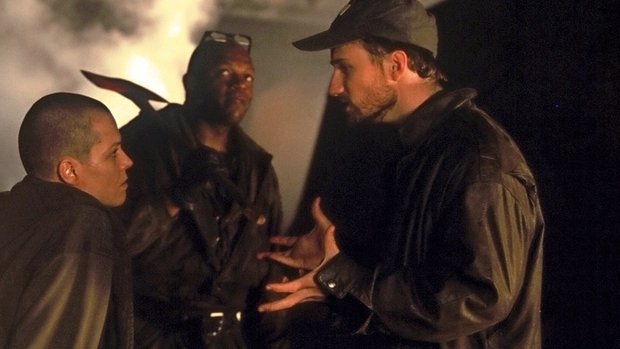
Indeed, despite a frosty fan reaction, Alien 3 has since gone on to be seen, by some, as a fittingly fiery end to the franchise – to the extent that a reassembled, and decidedly superior, “director’s cut” was later offered to fans as an accompaniment to the theatrical version (unfortunately Fincher refused to be involved). Furthermore, as time has passed, one does need to question what the alternative to the Alien 3 we now know (and perhaps love) would have been: a Ripley and co romp in which Weaver and pals are pitted against sundry space-fiends in sequel after sequel? A “teenage angst” tale focusing on the puberty-perils of Newt? A cloned Ripley who can shoot basketballs with the best of them and breed out alien offspring?
Oh hang on, they tried that... “I was, and am, surprised that the franchise kept going,” admits Hill. “When we did Alien all we wanted to do was to bring a more sophisticated style of filmmaking to what had always been regarded as a B-picture. I always thought that if you did that you would have a commercially rewarding endeavour. But who knew that approach would lead to the Hollywood you have now, where more serious dramatic films have been squeezed out by that B-movie approach. The fact that our monster movie contributed to the loss of a wider approach to filmmaking is, in a way, quite sad.”
Such a pessimistic statement seems entirely fitting for a feature on sci-fi’s most famous feelbad follow-up. Even so, we would wager that few would argue that, in the grand scale of studio sequels, it’s unlikely that anyone will ever again dare to destroy a potent celluloid property like David Fincher did with Alien 3. For that reason alone, we can but admire the decisions – however mad – that led to this most unlikely of threequels.
Click here for more excellent SFX articles. Or maybe you want to take advantage of some great offers on magazine subscriptions? You can find them here
ALL IMAGES © REX FEATURES
I'm the Editor of SFX, the world's number one sci-fi, fantasy and horror magazine – available digitally and in print every four weeks since 1995. I've been editing magazines, and writing for numerous publications since before the Time War. Obviously SFX is the best one. I knew being a geek would work out fine.


